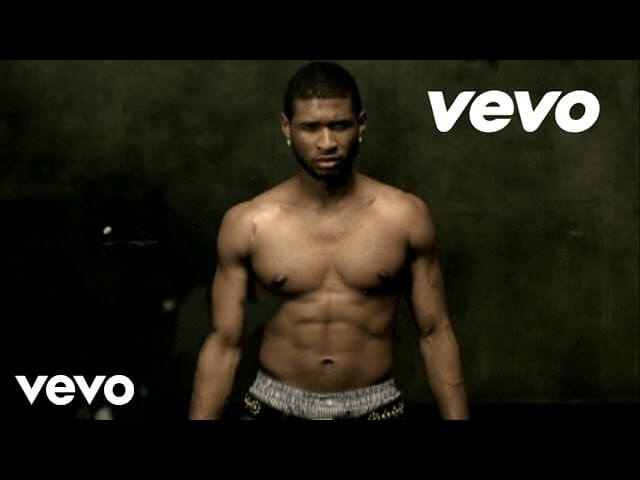Usher’s Confessions rode fictionalized scandal to the top of the charts

In We’re No. 1, The A.V. Club examines an album that went to No. 1 on the Billboard charts to get to the heart of what it means to be popular in pop music, and how that concept has changed over the years. In this installment, we cover Usher’s Confessions, which went to No. 1 on April 10, 2004, where it stayed for five weeks, returning for another three weeks on May 22 and a final week on June 19.
In the world of contemporary urban music, no figure is more loathed than the A&R rep, those faceless label suits that fans scapegoat for every career misstep their favorite artists make. Of course, few fully understand what an A&R rep does, but here’s what we do know: They’re the people who kill otherwise promising careers with bad decisions—the meddlesome parties responsible for every frustrating album delay, every ill-fitting crossover attempt, and every shoehorned Wale guest verse. Basically, whenever a rapper or R&B singer’s new album doesn’t turn out as we’d hoped, there’s an A&R rep to blame.
For the most part, that’s healthy. Especially as labels have grown increasingly risk averse over the last decade, the wait for a major urban album to hit the market has become so frustrating that it’s cathartic to have a vaguely defined boogieman to point fingers at when something inevitably goes wrong. But here’s the dirty secret about A&R reps: Sometimes they get it right, and albums really can turn out better for their intervention.
Usher’s Confessions is one of the ultimate cases in point. The best-selling record of 2004, it has moved more than 10 million copies in the United States and twice that worldwide, along the way smashing all sorts of chart records that only Adele could realistically dream about topping today. And it deserved to. It’s a great record, the consensus choice for best R&B album of the ’00s, and one of those rare big-budget productions where seemingly everything went right. Perhaps that success shouldn’t have been surprising, given the talent involved. Beyond the bankability of Usher, a charismatic star on the rise, Confessions assembled a murderers’ row of hip-hop and R&B’s hottest songwriters and producers of the era, including Jermaine Dupri, Lil Jon, Bryan-Michael Cox, Just Blaze, Rich Harrison, Jimmy Jam and Terry Lewis, and Dre & Vidal, all of them on their A-game. Casts like that don’t line up themselves; there were plenty of guiding hands behind the scenes.
Usher had been groomed for stardom since before he was a teenager, and he’d always played the part well. Like many child stars, though, his showmanship often overshadowed his personality. Even on 2001’s 8701, his first truly adult album, Usher sold the hell out of the material without revealing much about himself. With Confessions, he and his team set out to change that. “I thought it was a good idea for people to know the dude,” Kawan Prather, one of Usher’s A&R reps at the time, told MTV. “The music has never been the question, but people tend to buy into the artist. The more they know about you, the more they feel like they’re there with you.”
As luck should have it, interest in Usher happened to be at an all-time high. The singer had attracted some attention for his relationship with TLC’s Chilli, and even more following tabloid rumors that he’d been unfaithful to her. Rather than go the usual damage-control route of denying or apologizing, saying whatever it took to preserve his spotless image, Usher steered into the curve. He conceded he’d cheated, channeling that guilt into Confessions, an album fixated on infidelity and its emotional aftermath. On his new songs Usher wasn’t the bad guy, per se, but he wasn’t the good guy, either. He was, for the first time in his career, complicated.
Before Confessions even had a release date, fans were abuzz over what personal revelations the record might contain, and Usher lobbed them a doozy with “Confessions Pt. 2,” a vivid vignette about a man coming clean after impregnating his mistress. Gossip columnists ran with stories about Usher’s love child, and given how fervently Usher played up the autobiographical nature of the album in interviews, they could be forgiven for taking the song at its word. As it happens, “Confessions Pt. 2” was based on a true story; it just wasn’t Usher’s. Jermaine Dupri later admitted the song was based on his experiences. Fans weren’t the only ones who had been fooled by the track. Usher’s ex Chilli also believed the song was about their relationship, Dupri recounted in a recent interview with Vibe.
